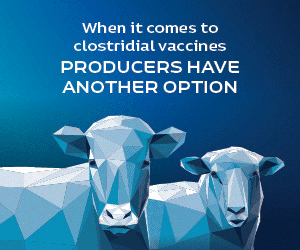Controversy Surrounds Animal Welfare Policies Ahead of Australian Election
The Australian Alliance for Animals has raised significant concerns in a pre-election policy review, claiming that both the Labor Party and the Greens have made crucial commitments regarding animal welfare without adequately informing the public or consulting the agricultural sector.
NFF President David Jochinke expressed that farmers are increasingly worried that the Labor Party and the Greens are listening to an uninformed, urban minority. This group, he noted, has gained its only experience on farms through unlawful means, such as trespassing.
“Farmers’ livelihoods hinge on achieving positive animal welfare outcomes—our animals are our priority. Any decisions regarding animal welfare must be informed by scientific evidence and made in consultation with industry stakeholders,” Jochinke stated.
Key Commitments Noted by the NFF
- Development of an animal welfare trade policy with a goal to include welfare provisions in new trade agreements.
- Expansion of the role of the Inspector-General of Animal Welfare and Live Animal Exports.
- In principle support for extending deductible gift recipient (DGR) status to all animal welfare charities, which could redirect significant funding to certain activist organizations instead of genuine charities.
This discussion comes amid ongoing debates about banning live sheep exports, influenced largely by activist groups, and a troubling lack of transparency surrounding animal welfare provisions in the recent Australia-United Arab Emirates Comprehensive Economic Partnership Agreement.

Jochinke further stressed the NFF’s anxiety regarding the sources of input in developing these policies. “Trade negotiations should prioritize market access and must include the voices of Australian farmers and exporters while excluding those who hold ideological opposition to farming practices,” he added.
He remarked, “Granting DGR status to radical activist groups isn’t about promoting animal welfare; rather, it funds campaigns aimed at dismantling farming families and the agricultural sector that feeds the nation.”
“Farmers will be taken aback, especially in light of the upcoming roundtable on the Australian Animal Welfare Strategy (AAWS), which includes representatives from farming organizations, the government, and animal welfare groups,” Jochinke commented.
Following the government’s controversial decision to ban live sheep exports, Jochinke indicated that this shift could further erode confidence in the government’s policy-making process regarding agriculture.
Concerns Over New Inspector-General
The Inspector-General of Live Animal Exports, established in 2019, has recently expanded its role as the Inspector-General of Animal Welfare and Live Animal Exports. Dr. Katherine Clift, appointed in September 2024, has yet to release her first review.
“It is disheartening to see significant policy proposals impacting farmers’ livelihoods without genuine representation from their voices and the scientific community,” Jochinke concluded.
Source: National Farmers Federation
This article is structured clearly with headings and formatted for readability, making it suitable for WordPress integration.



